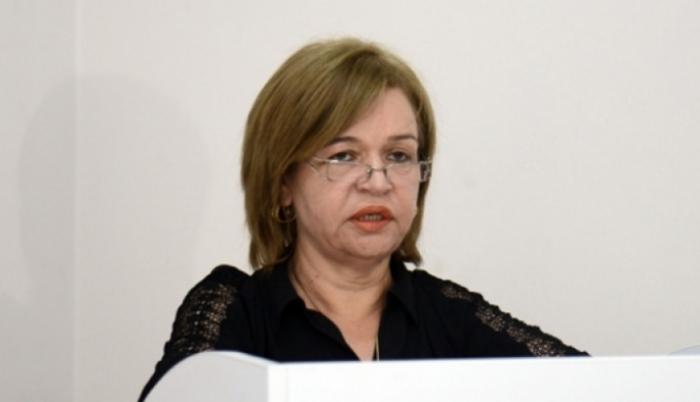
It is necessary to go beyond the ideological influence mechanism aimed at "national in form, socialist in content" human education
Writing textbooks that meet the requirements of the modern era is one of the most important and important issues for universities. This is especially relevant for humanities, including literature. It has been 35 years since our independence was declared. Now we can easily teach the topics that the Soviet ideology and power have banned in relation to national and world literature. At the same time, it is necessary to go beyond the ideological influence mechanism aimed at "national in form, socialist in content" human education. Unfortunately, there are still cases of encountering these frames. The main reason for this is that the field of humanitarianism includes rich information, and breaking the previous framework creates the need to derive new facts and provide their theoretical analysis. This is serious and hard work.
In response to AZERTAC's inquiry, Tahira Mammad, head of the Department of Literary Theory of IANAS nstitute of Literature after Nizami Ganjavi, Doctor of Philology, Professor Tahira Mammad, said this while talking about problems in teaching literature in higher educational institutions.
There is a need for joint action of ANAS and universities to write new textbooks. No one will dispute that very serious researches were carried out in ANAS during the period of independence. The theory and application of re-periodization of our literary history has come true. University students hardly know about it. In most universities, the concept of literature of ancient times is taught according to Soviet prohibitions, caution against Sufism in the teaching of the Middle Ages, and the tradition of building only on enlightened realism of the 19th century continues. The study of the first decades of the 20th century in the context of world literature and national renaissance, the contradictions experienced by Soviet literature in the relationship between craft and ideology, and the unique poetics it formed are not properly mastered by students.
Students have difficulty finding textbooks. Another problem arises when they are recommended as a textbook the history of literature published by the Academy of Sciences. Literary histories based on academic research sometimes overwhelm the student with their breadth of information. It is difficult for them to select the information they need from there.
Internet resources are also not very convenient for lesson preparation. Along with scientific analysis and true facts, misinformation and subjective analyzes are often tolerated on the Internet. In this case, the student finds it difficult to choose right and wrong. Another university does not know about the textbook written in one university. Newly written textbooks should be widely discussed, their successes and failures, innovations, and benefits should be revealed.
It is important to take a number of necessary steps to bring the teaching of literature in higher education to the level of modernity and independent outlook, to overcome the psychological barrier of textbooks and student communication:
- The topics provided in the educational programs should be discussed and coordinated;
- The main project of education is the program, and the programs should come out of the framework of the first half of the last century;
- The results of ANAS research should be taken into account in textbooks. ANAS and universities should work together in writing textbooks;
-Alternative textbooks should be written, their scientific level and how suitable they are for teaching, and the possibility of practical impact should be taken into account;
- The number of teaching materials should be increased;
- Inter-university relations and relations should be strengthened.
I come to this conclusion based on the situation I encountered as an employee of ANAS and a professor teaching the subject of literature at the university. There is a serious need for literary scientists and pedagogues to come together and discuss educational programs and textbooks and work together.
 Aynur Yusifova
Aynur Yusifova
